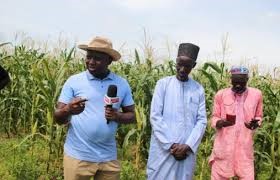WASHINGTON, May 2, 2024 – The World Bank’s Board of Executive Directors has approved a $68.00 million financing for The Gambia Inclusive and Resilient Agricultural Value Chain Development (GIRAV Project), of which US$10.00 million equivalent is from the International Development Association Crisis Response Window – Early Response Financing.
The project will address food insecurity by scaling-up implementation of impactful activities such as: improving water availability and land tenure to foster climate resilient agriculture and supporting improved water and sanitation in the targeted areas.
“This funding boost for GIRAV will address various critical needs: replenishing diverted resources, tackling food crises with climate-smart solutions, enhancing rural infrastructure for resilience, and advancing land administration, particularly for female farmers,” said Aifa Fatimata Ndoye Niane, Senior Agriculture Economist and Project Task Team Leader.
“This project will fully support the Gambian Government’s vision and objectives for the agricultural sector. The core of GIRAV is a commitment to inclusivity, ensuring that all stakeholders, including women, youth, and vulnerable communities have equal opportunities to participate and benefit from agricultural value chains. Through capacity building, training programs, and access to financial resources, GIRAV aims to empower marginalized groups and promote gender equality within the agricultural sector,” said Feyi Boroffice, World Bank Resident Representative.
With this additional financing to GIRAV, the number of beneficiaries will increase from 100,000 to 200,000 farmers to consider the new beneficiaries of access to water (50,000), other innovations (30,000) and to registered land rights (20,000).
GIRAV prioritizes resilience, recognizing the urgent need to mitigate the impacts of climate change and environmental degradation on agricultural productivity. This additional funding will increase access to improved technologies and innovations and clean water and will further boost the transition from subsistence to commercial-oriented agriculture as well as enable inclusive and resilient private sector driven job creation.
*The International Development Association (IDA) is the World Bank’s fund for the poorest. Established in 1960, it provides grants and low to zero-interest loans for projects and programs that boost economic growth, reduce poverty, and improve poor people’s lives. IDA is one of the largest sources of assistance for the world’s 75 poorest countries, 39 of which are in Africa. IDA resources help effect positive change in the lives of the 1.6 billion people living in the countries that are eligible for its assistance. Since its inception, IDA has supported development work in 113 countries. Annual commitments are constantly on the rise and have averaged $26 billion over the past three years, with about 72% going to Africa.
















